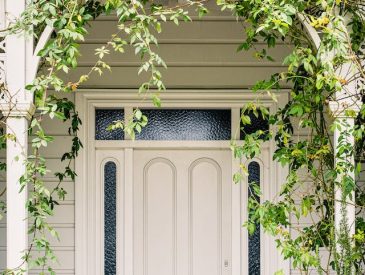Home improvement is a term that resonates with the desire to make the place we live more comfortable, functional, and aesthetically pleasing. The concept encompasses a wide range of activities from small repairs and DIY projects to extensive renovations and additions. It is not merely about the physical transformation of a space; home improvement reflects the evolving needs and tastes of its inhabitants, and in many ways, it is an ongoing process of creating and recreating a sanctuary that mirrors personal style and lifestyle preferences.
The Multifaceted Nature of Home Improvement
At its core, home improvement involves making modifications to one’s home to enhance its features, utility, and value. This can be broken down into several categories:
- Renovations and Remodeling: This often involves significant changes to the existing structure, such as remodeling a kitchen or bathroom, finishing a basement, or adding a room. These changes usually aim to modernize spaces, improve functionality, or adapt a home to new life circumstances, such as a growing family.
- Repairs and Maintenance: Keeping a home in good shape is a constant endeavor. This includes fixing leaking faucets, replacing worn-out roofing, or updating electrical wiring. Regular maintenance ensures the longevity of the home and prevents minor issues from escalating into costly problems.
- Energy Efficiency Upgrades: With growing environmental concerns and rising energy costs, many homeowners are looking to improve the energy efficiency of their homes. This can include installing energy-efficient windows, adding insulation, or upgrading to high-efficiency appliances.
- Aesthetics and Decorating: Sometimes, home improvement is simply about making a space more beautiful. This can involve painting, adding wallpaper, installing new flooring, or incorporating decorative elements that reflect personal style.
- Outdoor Improvements: Home improvement isn’t confined to the indoors. Landscaping, garden enhancements, deck building, and exterior siding improvements all contribute to the overall appeal and functionality of one’s living space.
- Safety Upgrades: Installing security systems, smoke detectors, carbon monoxide detectors, and making other safety improvements are also a vital part of maintaining a secure and safe home.
The Personal Significance of Home Improvement
The psychological significance of home improvement is profound. Our homes are our havens, and improving them can create a sense of comfort, achievement, and pride. A freshly painted room, a well-organized living space, or a newly landscaped garden can provide a sense of renewal and satisfaction. Moreover, the process of transforming a home can be a creative and therapeutic endeavor, offering a respite from the busy world outside its walls.
Economic and Social Implications
Home improvement also has economic implications. For many, a home is the largest investment they will ever make. Improvements can increase a home’s market value, making it more attractive to potential buyers or renters. Additionally, the home improvement industry is a significant contributor to the economy, creating jobs for contractors, designers, and retail workers.
Socially, improved homes can enhance neighborhoods and communities. Well-maintained and aesthetically pleasing homes can boost neighborhood pride and property values, while large-scale improvements can rejuvenate entire areas, attracting new residents and businesses.
The essence of home improvement lies in its ability to merge the practical with the personal. It is a multidimensional process that caters to the enhancement of our private dwellings, aligning them more closely with our needs, dreams, and aspirations. It goes beyond mere construction and decoration, touching the lives of individuals and communities, fostering a sense of belonging and comfort that can only be found in a place we call home.

Frequently Asked Questions (FAQs) about Home Improvement
- What should I consider before starting a home improvement project?
Budget: Assess how much you are willing to spend and factor in a contingency for unexpected costs.
Return on Investment (ROI): Consider whether the improvements will add value to your home, especially if you plan to sell in the future.
Permits: Determine if your project requires permits from your local government or homeowner’s association.
Design: Have a clear vision of what you want to achieve and, if necessary, consult with a designer or architect.
Contractors: If you’re hiring professionals, research and select reputable contractors with the necessary skills and credentials.
2. Do I need a permit for home improvement projects?
It depends on the scope of your project and local regulations. Typically, structural changes, electrical work, or significant alterations require a permit. Check with your local building department to be sure.
- Can I do home improvement projects myself, or do I need to hire a professional?
Many home improvement projects can be done DIY if you have the necessary skills and tools. However, complex projects involving plumbing, electricity, or structural changes often require professional expertise to ensure safety and compliance with building codes.
- How do I choose the right contractor?
Get recommendations from friends or family, read online reviews, verify licensing and insurance, and ask for and contact references. It’s also wise to get multiple bids and ask detailed questions about their approach to your project.
- How long do home improvement projects typically take to complete?
The timeline varies widely depending on the project. Small DIY projects might take a weekend, while large renovations can take several months. Weather, permit acquisition, and the availability of materials and labor can all affect the timeline.
- What home improvements offer the best ROI?
Improvements with the best ROI often include kitchen and bathroom renovations, exterior improvements (like new siding or roofing), and energy-efficient upgrades.
- Are there any tax benefits to home improvements?
Certain home improvements, especially those that improve energy efficiency, may qualify for tax credits or deductions. It’s best to consult with a tax professional regarding your specific situation.
- How can I ensure that my home improvement is environmentally friendly?
Use sustainable, non-toxic materials, aim for energy-efficient designs, and consider recycling or donating old materials and appliances.
- What should be included in a home improvement contract?
A contract should clearly outline the scope of work, materials to be used, timeline, payment schedule, and any warranties or guarantees. It should also specify what happens in the case of unexpected issues or costs.
- What is the difference between a home improvement and a home repair?
Home improvement generally refers to projects that upgrade your home, add features, or improve aesthetics. Home repairs involve fixing existing problems to restore functionality, such as patching a leaky roof or replacing a broken furnace.
- How do I deal with home improvement project stress?
Plan thoroughly, communicate regularly with your contractor, expect some disruptions, and maintain a flexible mindset. Keep your eye on the end goal to help navigate through the stress of the process.
- Can I live in my home during a major renovation?
It depends on the extent of the renovation. For significant structural changes or if utilities will be offline for an extended period, it might be necessary to find temporary accommodation.
- How should I prepare my home for renovation?
Clear out the area being renovated, protect your furniture and belongings from dust and debris, and establish clear pathways for workers to move through your home.
- Is it better to renovate a home or move to a new one?
This is a personal decision and depends on many factors, including attachment to the current home, the cost of renovations vs. moving, and the potential for improving your home’s value.
- What are the common pitfalls to avoid in home improvement?
Underestimating costs, skimping on quality, over-improving beyond neighborhood values, neglecting permits, and poor contractor selection are common pitfalls to avoid.
Remember, the key to successful home improvement is careful planning, understanding the scope and limitations of your project, and ensuring that you comply with legal and safety standards.
Conclusion
Home improvement stands as a testament to the idea that our homes are more than just physical structures; they are the backdrop to our lives, reflecting our personalities, aspirations, and growth. Whether it is a simple coat of paint to refresh a room or a comprehensive remodel to increase functionality and value, every act of home improvement is a step towards personalizing our living spaces.
The journey of improving one’s home can be as rewarding as the outcome. It can be filled with learning experiences, moments of creativity, and opportunities for family togetherness. It is a multifaceted endeavor that balances aesthetics with functionality, personal taste with market trends, and immediate desires with long-term planning.
Yet, with its complexities, home improvement also requires a methodical approach to decision-making and project management. It calls for due diligence in planning, budgeting, understanding local regulations, and choosing the right professionals. Moreover, it’s important to recognize when to DIY and when to call in experts, ensuring that safety and quality standards are not compromised.
In the grand scheme, the culture of home improvement underscores a larger narrative about homeownership and caring for our places of refuge. It speaks to the intrinsic human desire to create environments that are not just habitable, but harmonious with the lives we lead. By making informed, conscious choices in our home improvement endeavors, we not only enhance our immediate surroundings but also contribute to the broader canvas of community and environment.
Ultimately, home improvement is an ongoing dialogue between us and our spaces—a conversation that evolves as we do, promising comfort, efficiency, and joy in the sanctuaries we craft with our visions and efforts.




